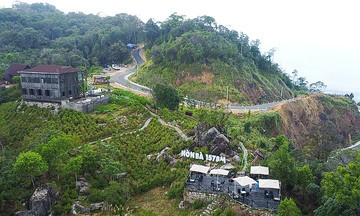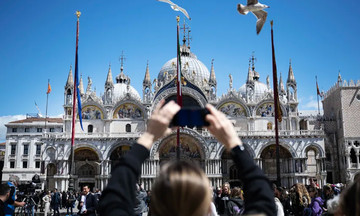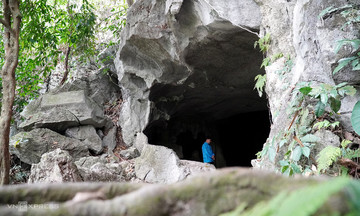An elderly couple from Kuala Lumpur traveled to Kuak Hulu village in Gerik town, Perak state, northern Malaysia, to visit a cable car line they had seen in a video circulating on social media. Upon checking into their hotel and inquiring about directions, they were informed by the staff that the video was AI-generated and the tourist spot was fictitious.
The nearly three-minute video begins with a female reporter, purportedly from "TV Rakyat," introducing the cable car and interviewing a few Thai tourists. It then shows visitors queuing to purchase tickets. The video proceeds to showcase the cable car gliding over pine forests, streams, and grazing deer, concluding near the foot of Mount Baling in Kedah state, northwestern Malaysia.
The video's ending features a peculiar scene where an elderly woman behind the reporter performs a handstand. However, her legs and body distort into a single mass during the flip, then return to normal upon landing.
"I explained to the tourists that the video was AI-generated, and neither the location nor the reporter were real," the hotel employee said, adding that the bewildered couple wanted to sue the individuals behind the fictitious TV channel.
The Malaysian female tourist mentioned that she hadn't seen any comments below the video warning about its fabricated nature. The employee also revealed that the couple had embarked on the trip without consulting their children.
The incident, shared on Threads on 30/6, quickly gained traction across Malaysia. The author of the post urged people to verify locations their parents plan to visit before they travel. Local police advised the public to exercise caution and verify information from travel videos or similar online content.
Ahmad Salimi Md Ali, the police chief of the Mount Baling area, stated on 3/7 that authorities hadn't received any formal complaints and that no cable car project existed in the region. He confirmed that initial investigations substantiated the video's entirely fabricated nature.
"We advise the public not to believe in circulating content without verification. In this age of AI-generated media, misinformation can spread easily and cause confusion," he said.
Ha Phuong (According to Straits Times)












